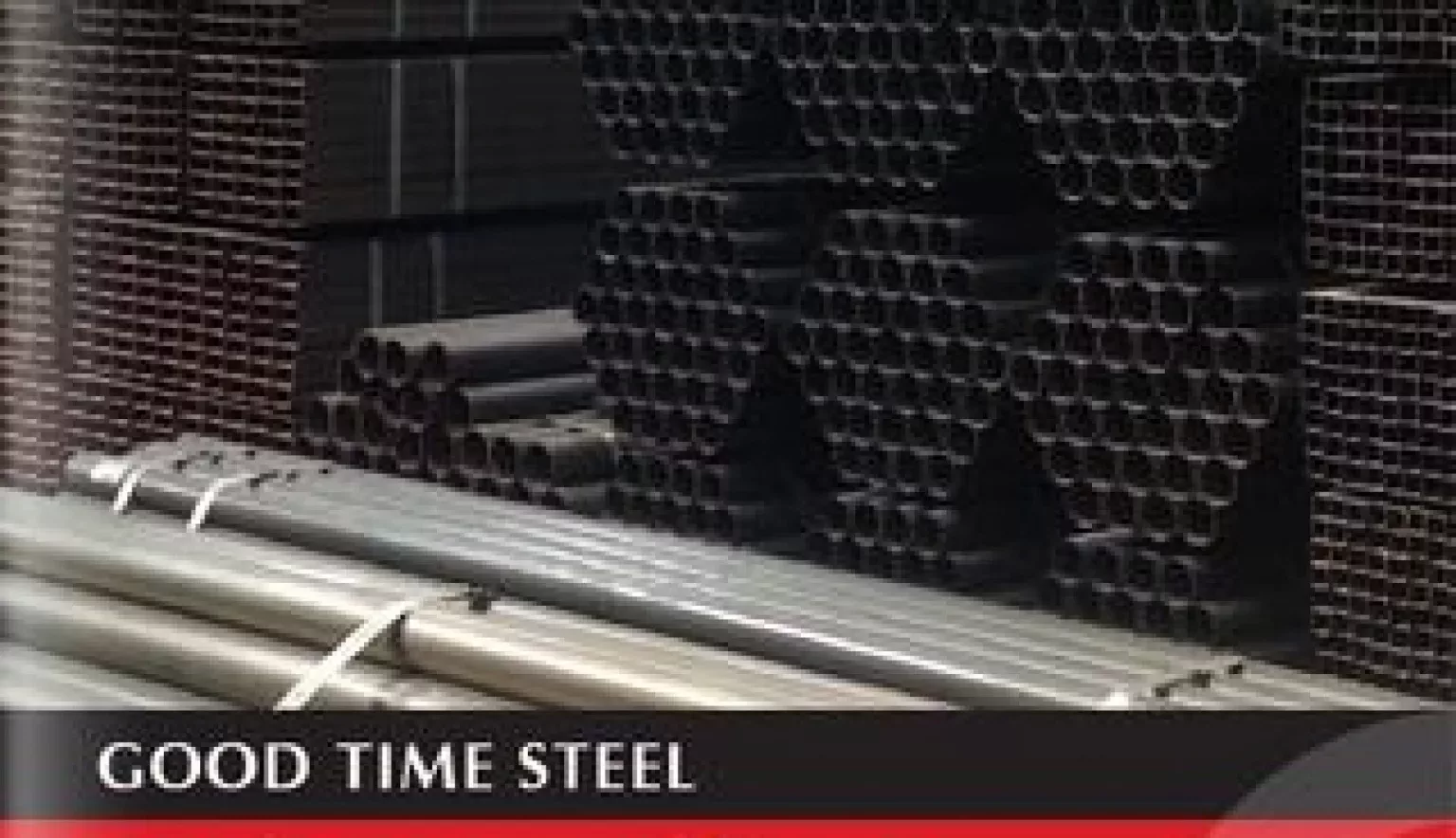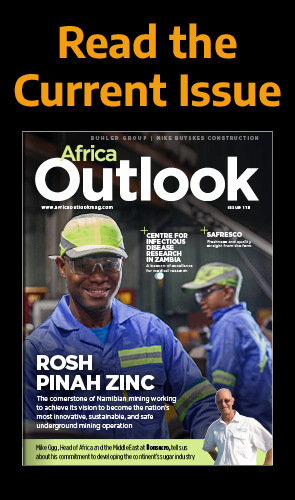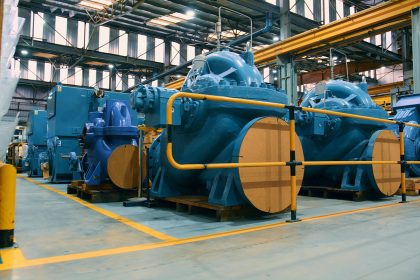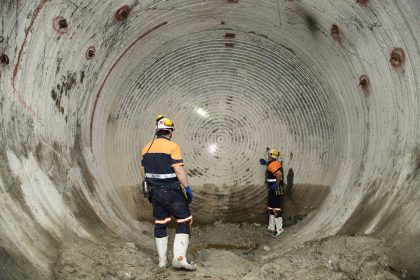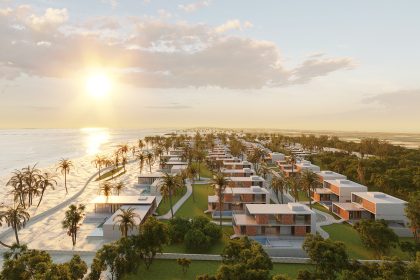Good Time Steel is the construction material manufacturing specialist looking to maintain its grip on the sector, and has begun to look towards Botswana, Namibia and Angola for future international growth.
SPREADING THE GOOD TIMES
Good Time Steel has progressed quickly and effectively over the past decade to become a regional construction company of note, and is now pressing forward to form the same reputable presence across the rest of Sub-Saharan Africa.
Established in 2005, as a private company with an initial investment of US$700,000, the business commenced production of just a small portion of its current range in 2008, and comprised just 65 people in its workforce at the time.
A decade on, and the Zambian market specialist now consists of around 500 employees, carrying out a range of processes to produce deformed bars, round bars, angle irons, square and round tubes, galvanised iron pipes, IPE channels, and now corrugated roofing sheets as well.
The capacity has inevitably increased alongside this continuous improvement over the years to now achieve 160 tonnes of production a day; allowing not only for a greater influence on the Zambian market, but to also enable the company to bridge out further internationally.
Deputy General Manager, Durban Kambaki explains: “Initially, in 2008, our markets were only in Zambia and Zimbabwe, but by 2010 and going into 2011, we started exporting to the Great Lakes region; so into Rwanda, Burundi and the Democratic Republic of Congo (DRC).
“Over the past five years, we have also gone on to cover Malawi and South Africa as well, and further down the line we are looking to expand into Botswana, Namibia and Angola which is one of the major markets available to us at present.”
CAPITAL EXPENDITURES
International expansion has gone hand in hand with attaining new business and strengthening the Good Time Steel footprint over the years, while it also emphasises a strong entrepreneurial flair within the business to make quick decisions and move in line with industry and regional trends.
This same ethos is placed on capital expenditures, with the company realising that, in quite a traditional and competitive sector, it is important to find a differentiator.
“I would say what sets us apart is the standards that we have put in place and the quality control,” says Kambaki. “We only use one type of raw material throughout our products – scrap mild steel – so that makes it easier for us to be consistent with the quality of what we produce.”
To complement this, Good Time Steel continuously invests into new equipment and facilities, with the recent introduction of a new modern laboratory housing the latest in advanced testing equipment indicative of this approach.
The company has also strived to become more efficient and automated where possible; upgrading its induction furnaces for example so that the quantities of steel being produced are increased and the down time of the workforce waiting for the steel to reach the required temperatures is reduced.
“We have also become more efficient through recycling,” Kambaki continues. “The initial re-heating furnaces were very inefficient and gave off a lot of smoke and caused leakages, but these have since been replaced with modern coal furnaces which burn more efficiently and are almost smokeless. We have also worked with an environmental agency to come up with a system to collect any emissions or particles that come out of the process.”
OVERCOMING CHALLENGES
Moving forward, Good Time Steel has already put the wheels in motion to modernise its facilities even further; firstly through the acquisition of neighbouring land to facilitate the upgrade of its smelting plant.
Kambaki notes: “It is a continuous process. This modernisation of the smelting plant will increase the amount of products we can manufacture and produce, while we are also integrating and introducing a new workshop which will enable us to provide training to fabricate all sorts of steel for construction and engineering works.”
To coincide with this progression and expansion, the company also has to ensure that it is building up the right skill base among its workforce; especially in a market where experience working in the steel sector is a rare commodity.
“Zambia is a copper country primarily so the steel and iron industry is quite a new thing, and there isn’t readily available trained manpower because of that,” Kambaki says. “To overcome this challenge, we bring in personnel from China to provide in-house training to our staff for all the innovations that come in to the company.
“If we upgrade or purchase new equipment, we ask the manufacturers of the machinery to bring their personnel here, train our people, and then we use those people as instructors from then on.”
The ability to come up with alternative solutions is also set to be advantageous in regards to imports over the next few years as Zambia looks set to exhaust its levels of scrap steel raw material.
Once again, the ability to make quick decisions and adapt where needed will be pivotal in overcoming this obstacle, as Kambaki notes: “Our directors come in on a quarterly basis so we have already explained the scrap position, and they have asked us to start looking to firstly see if we can source the scrap from neighbouring countries or, if that fails, we can switch to direct reduced iron instead.”
LOCAL FOCUS
Looking further afield in attaining these raw materials would be a little bit outside of the current Good Time Steel business model which has traditionally tried to maintain as local an emphasis as possible throughout the business.
Outside of spare parts specific to the machinery it has to import from China, nearly all the raw materials brought into the company are sourced locally.
Subsequently aiding the Zambian economy and the growth of a relatively new industry, Good Time Steel is always keen to enrich the lives of the surrounding areas, and originally put this philosophy to good use in situating its factory in a recently built industrial area.
Kambaki says: “It is a traditionally strong area for farming so as well as working with them on corporate social responsibility (CSR) projects, we have also just finished donating roofing sheets to a nearby school, and are now sponsoring a local football team as well.
“Beyond that, we have also just planted up to a thousand trees and bushes to try and restore some greenery in an area where trees had previously been cut down.”
This commitment to quality and improvement appears both in Good Time Steel’s CSR and construction efforts, for which it has consequently been awarded for on numerous occasions.
Now, with an even wider geographical footprint on the horizon, the company is looking to cement its position as the country’s second biggest steel manufacturer through the provision of quality and timely services, with the customer kept in mind in everything the business does.



